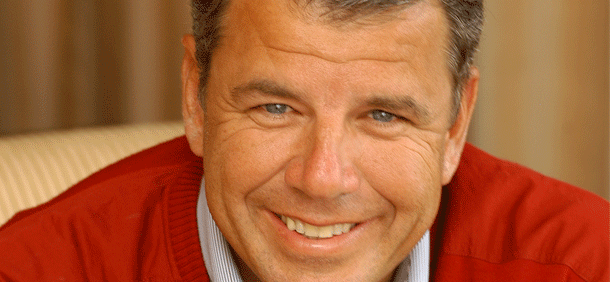Hikmet Ersek: India Will Continue to Remain Number One in Remittances
 Hikmet Ersek, chief executive officer of Western Union Holdings Inc., a US-based global money transfer company, is not willing to write-off cash transfers in a hurry despite technological advances. The company’s net profit fell 14% to $212 million (around Rs.1,270 crore) in the March quarter from $247 million a year ago, as traditional money transfer routes face competition from new digital and mobile products. But Western Union, too, Ersek said in an interview on Tuesday, is slowly but surely embracing digitization by allowing people in India, for instance, to receive remittances from the US and the UK directly into their bank accounts instead of as cash transfers.
Hikmet Ersek, chief executive officer of Western Union Holdings Inc., a US-based global money transfer company, is not willing to write-off cash transfers in a hurry despite technological advances. The company’s net profit fell 14% to $212 million (around Rs.1,270 crore) in the March quarter from $247 million a year ago, as traditional money transfer routes face competition from new digital and mobile products. But Western Union, too, Ersek said in an interview on Tuesday, is slowly but surely embracing digitization by allowing people in India, for instance, to receive remittances from the US and the UK directly into their bank accounts instead of as cash transfers. Your profit is lower than last year. How are you addressing the issue?
Revenue will be down this year too. But transactions are growing faster than last year. The reason for this was the December and January pricing action in certain corridors. Now we are doing much better. The first strategy is that we have reduced prices in certain corridors and increased them in others. Currently, we are in 16,000 corridors—for instance, the UAE and India is one corridor (a corridor comprises fund flow between two countries). The second big investment is in the digital space. We have opened a digital office in San Francisco that supports our digital venture. This is our biggest growing area, which at over 40% is one of our future bets. The third major investment is in B2B (business to business). Today it is easy for an entrepreneur to send furniture from India to Germany. Now try to get $47,000 from a small SME (small and medium-size enterprise) in Germany to a small SME in UP (Uttar Pradesh). It is quite tough. And to make that easy, we have the B2B business for SME money transfer. That looks like a huge opportunity for us as our market share in this space is just 2%.
What is the balance between cash and digital for your business? What’s your target?
More than 90% is currently cash. You keep on hearing of cashless transaction and death of cash. I don’t believe it. I have been hearing it for the last 20 years and it has not happened yet. Cash will continue and so will digital. Digital is seeing growth. We haven’t shared the forecast yet, but digital will be much faster than the retail part of the business. We expect B2B to grow double-digit in the next year. The retail growth will be, however, slower.
India is the largest receiver of remittances. What role will emerging markets such as India play in your business?
India has always been one of our favourite markets. There is something in India where you can combine the regulatory aspect and entrepreneurship in India, which always has been a best case for us. We understood that regulators want security for customers. We have understood that and combined that with our entrepreneurship. The second reason is that the second- and third-generation Indians abroad still support their families here. You don’t find that everywhere. That supports our business. And now Indians are seen sending money in different ways. The new generation is going digital by sending money through mobile apps; that multichannel is an advantage for us. Currently, we have 100,000 plus locations in India. We are now dropping money in accounts from the UK and US. We also announced domestic account transfers, which I believe is huge. Next will be sending money out of India.
For instance, currently you have students in India sending money for education purposes, but such outflows are currently minuscule. In 10 years, how do you expect Indian to change?
Given the demographic advantage of India and disadvantage of demographic issues of the West, including Gulf states, I believe India will continue to export human capital. The big advantage the Indian population has is its portfolio of migrants. You don’t see Mexico exporting IT (information technology) engineers. India exports IT engineers, doctors, construction workers, workers for the services industry and hotel industry. Now that is India’s biggest advantage. And it will continue. There will always be issues such as the one Saudi Arabia called Saudization where they want to give jobs to the nationals, which is a short-term issue. India is currently the number one receiver of remittance followed by China, the Philippines and Mexico. I don’t see it changing for India.
Considering that you are focusing more on digital, what are your India plans?
For India, it is a bit different. The mobile wallet has not yet spread in India. First, you will need a national payment system. Dropping money into accounts will be huge, whether it is domestic or international. The good side is that there is an opportunity, but the downside is that the country has diversity. Giving a unique identity card itself is a problem. So there is a long way to go. (Vivina Vishwanathan \ Joel Rebello http://www.livemint.com)
Last modified onSaturday, 06 May 2017 10:07
Latest from Admin TOA
- World Energy Council Türkiye Holds the Opening Meeting of the Young Energy Leaders (YEL’26) Program
- The Shared Pulse by Eda Uzunkara
- NEO HUMAN 10.0: How Will the Future Be Shaped? (Filiz Dag)
- Calculatit.net Is Bringing Pricing Transparency to America’s Construction Industry
- Support Independent, Trustworthy Journalism








